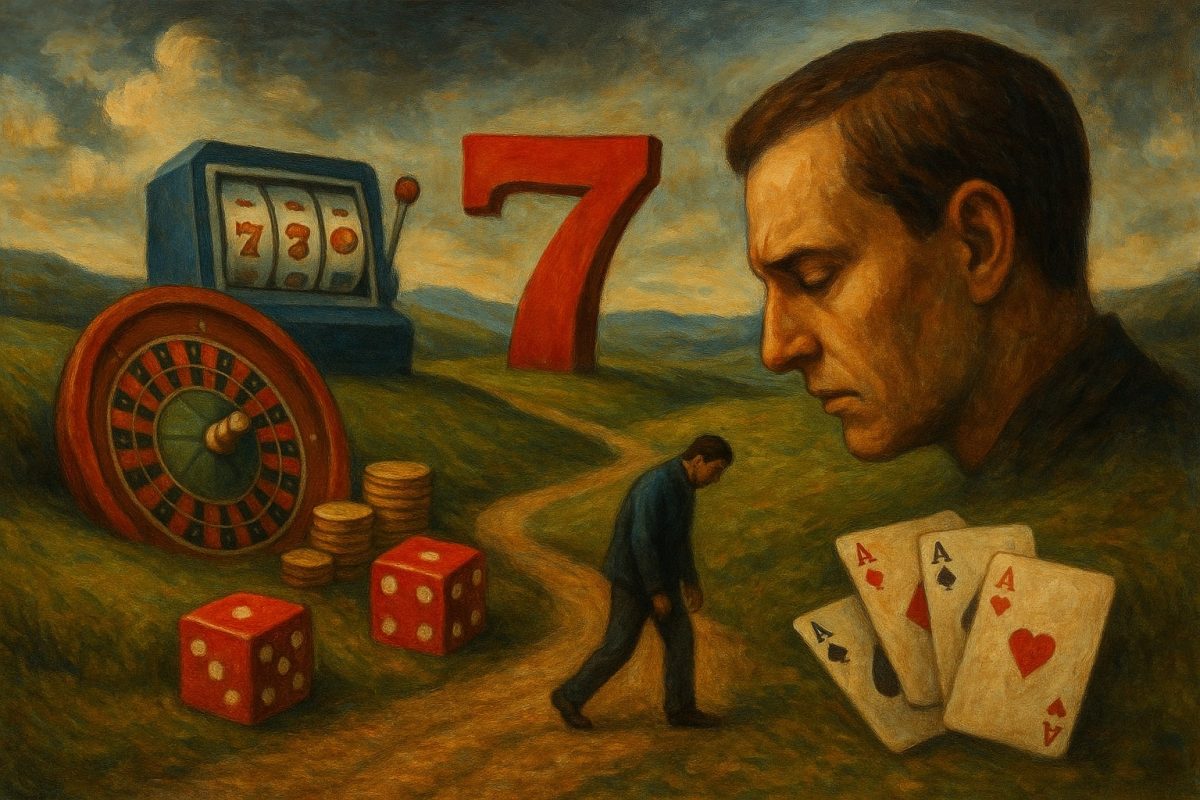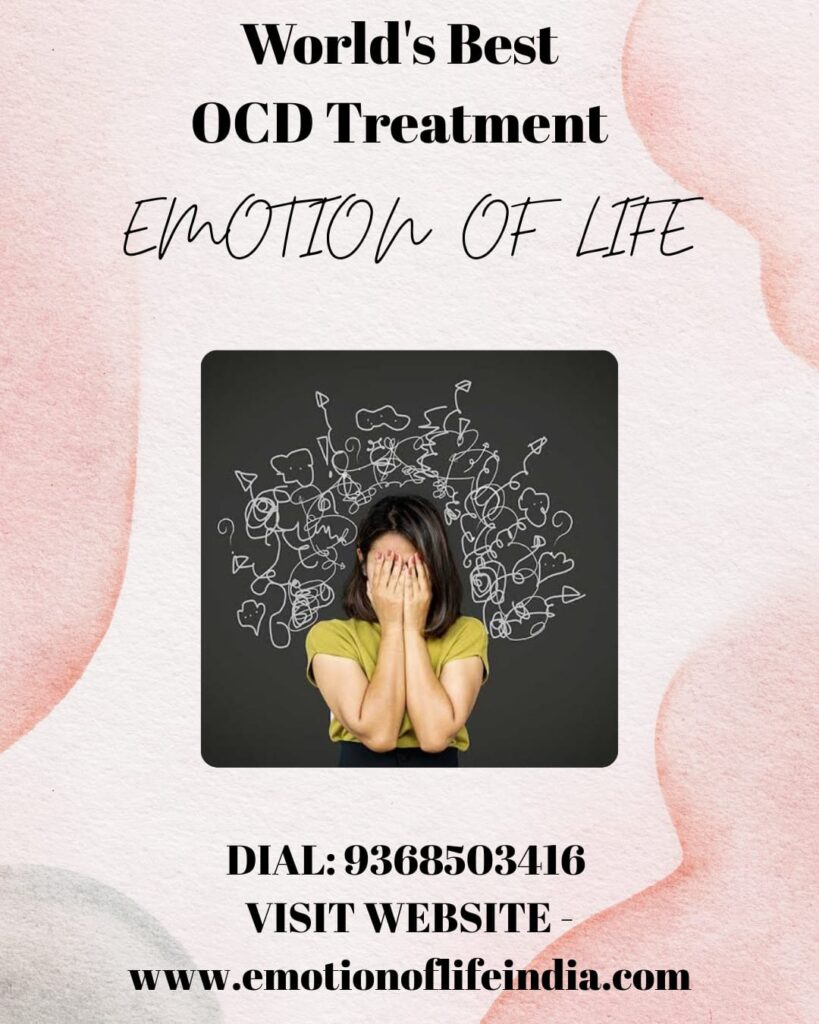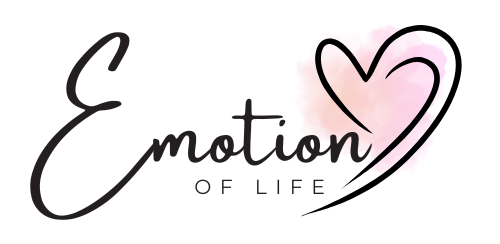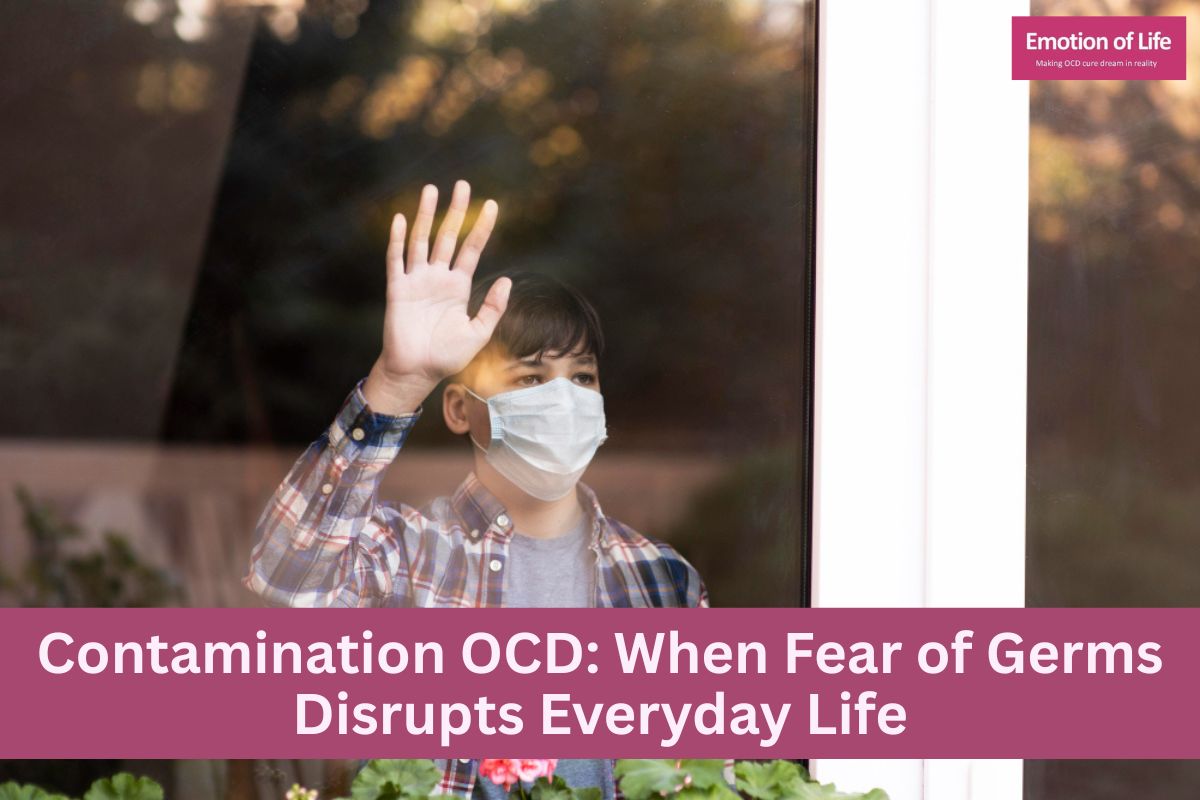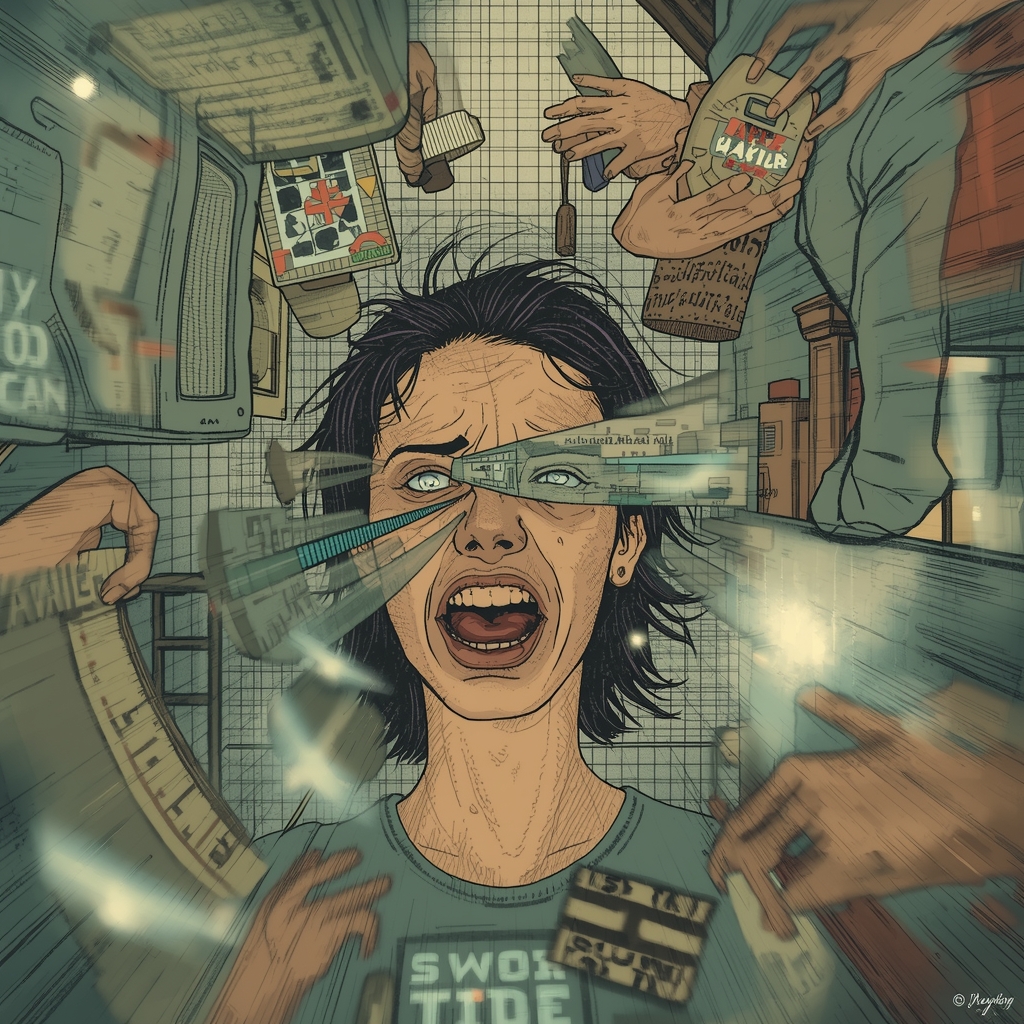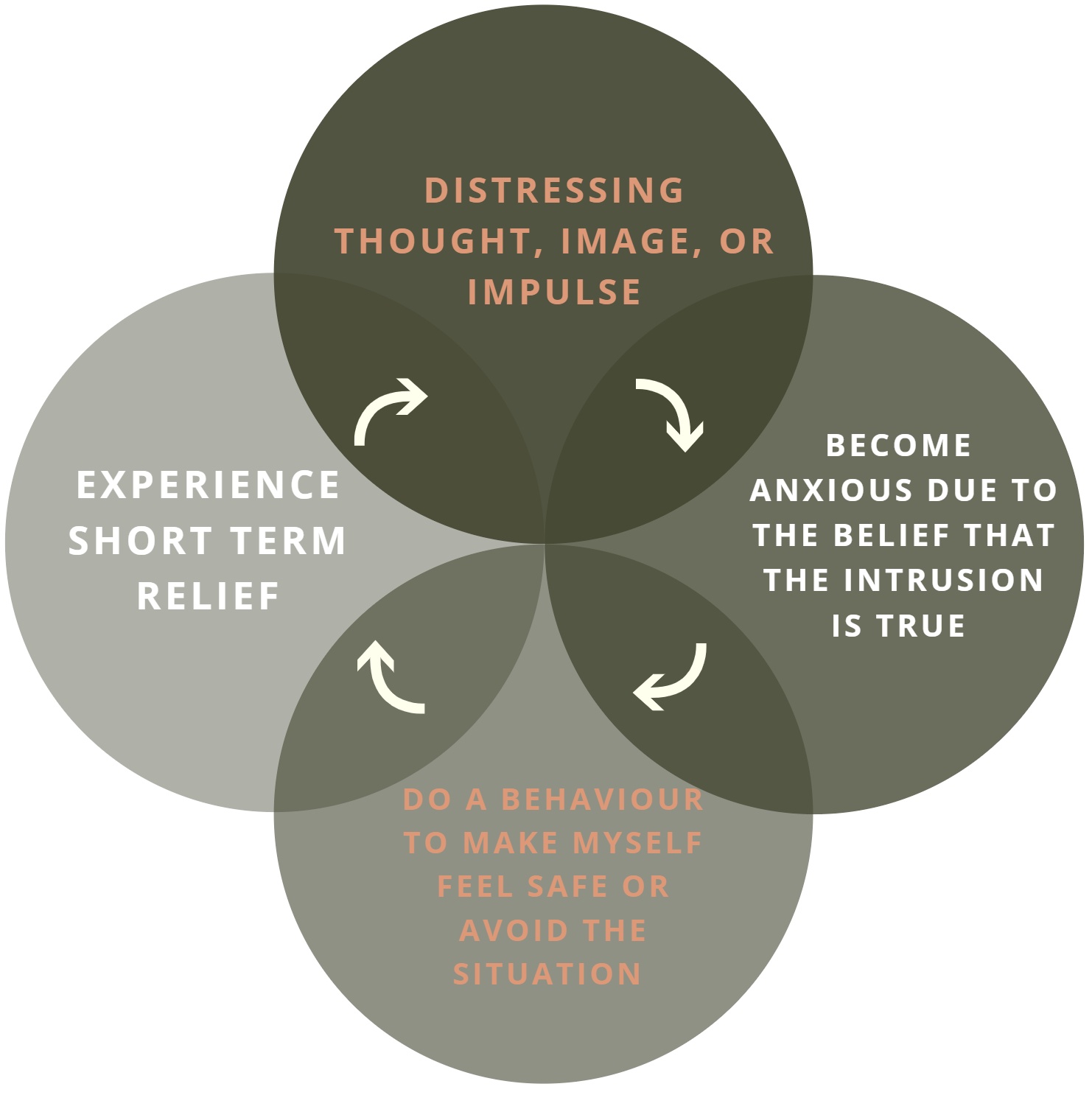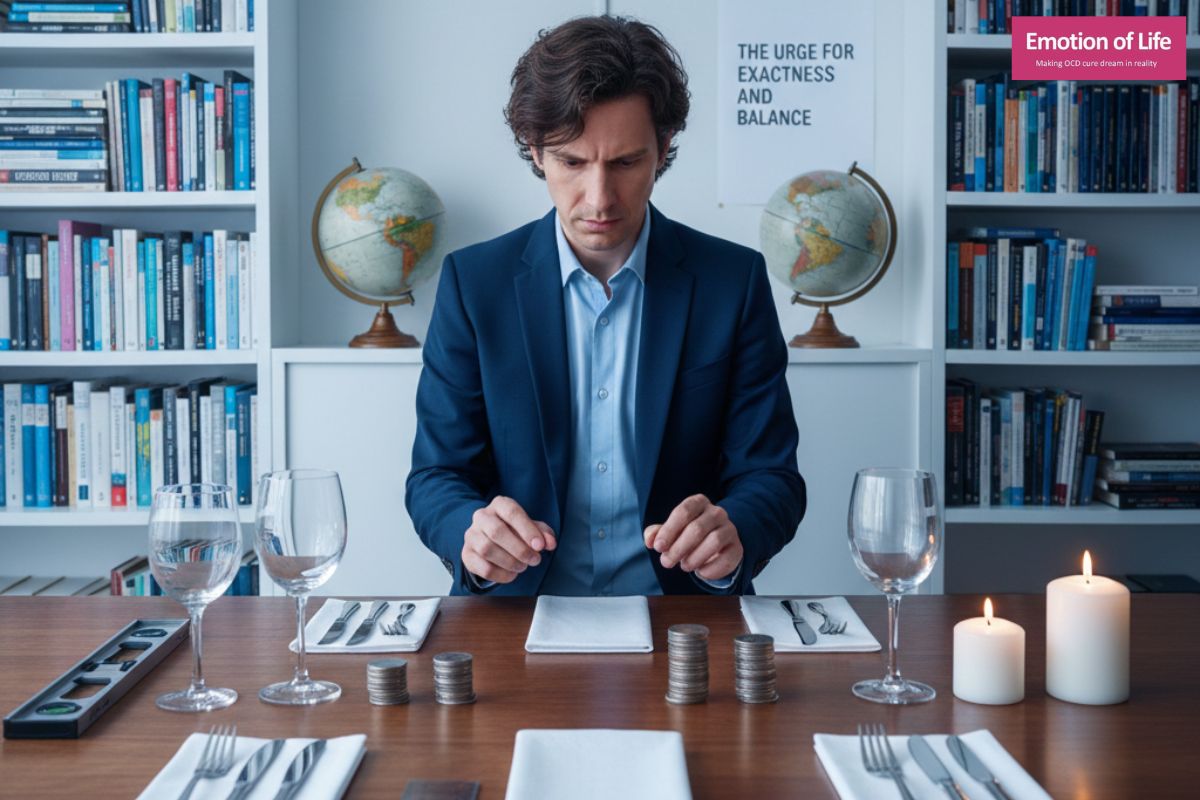OCD of Gambling
OCD of Gambling is a distinct and often misconceived variant of Obsessive-Compulsive Disorder, where anxiety primarily stems from the fear of gambling or losing control over it. In contrast to gambling addiction, which is motivated by the pursuit of excitement or financial gain, OCD of Gambling is driven by fear. Those affected do not gamble for enjoyment; instead, they struggle with troubling thoughts and moral anxieties centered on gambling. Their minds tend to amplify the dangers associated, leading to persistent anxiety and compulsive actions intended to mitigate these perceived threats.
OCD of Gambling individuals frequently wrestle with distressing questions like, “What if I lose control and gamble away all my savings?” or “What if I’m truly a gambler at heart?” Even when rationally aware that these fears are unlikely, the anxiety is still overwhelming. They misinterpret these intrusive thoughts as dangerous and unacceptable, prompting them to engage in behaviors like checking, avoiding triggers, or seeking reassurance, which can lead to exhaustion and impede daily life, work, relationships, and overall well-being.
Understanding the key difference between OCD of Gambling and gambling addiction is essential. Addiction involves a compulsion for pleasure or reward, with the individual continuing to gamble despite negative repercussions. In OCD of Gambling, the compulsion centers on averting a feared future event, and the anxiety arises from intrusive thoughts, not from the act of gambling itself. Thus, a person with OCD of Gambling may shun casinos, refrain from logging into betting apps, or avoid gambling-related news, not out of temptation, but because they perceive these situations as threats.
Symptoms of OCD of Gambling
OCD of Gambling can present in various ways and often overlaps with other obsessive concerns, such as moral OCD or contamination OCD.
- The primary symptom is the presence of intrusive thoughts, which are persistent, troubling, and often frightening. Many individuals feel significant guilt and moral distress simply for experiencing brief gambling-related thoughts, fearing that such thoughts indicate moral failing or danger.
- Common behaviors include checking rituals, like repeatedly inspecting bank statements to confirm no unauthorized transactions, or mentally revisiting past events to ensure they haven’t acted on any gambling urges.
- Some might engage in mental rituals, such as silently repeating reassuring phrases or praying to alleviate their thoughts. Others may steer clear of any gambling-related discussions or media, which can limit their social and professional interactions. They often experience panic, restlessness, and racing thoughts when exposed to triggers such as lottery tickets or casino promotions.
- In daily life, the impact of OCD of Gambling can be subtle yet significantly disruptive. Individuals may invest hours ensuring that all their financial decisions are secure, avoid social gatherings because of potential gambling discussions, or mentally rehearse worst-case scenarios.
- The obsession is driven by the need to preempt an imagined disaster, leading to vigilance that can be draining and emotionally taxing, often resulting in social isolation and a lower quality of life.
Psychological Mechanisms Underlying OCD of Gambling
At the heart of OCD of Gambling are mechanisms of uncertainty intolerance and thought-action fusion. Intolerance of uncertainty leads individuals to view even the slightest risk of gambling as intolerable. Thought-action fusion represents the cognitive distortion where merely entertaining thoughts of gambling is seen as morally equivalent to the act itself.
For instance, a fleeting thought about online betting might trigger the belief, “Does this mean I am a real gambler?” This results in heightened guilt, anxiety, and compulsions aimed at averting a perceived disaster. The cycle of compulsion is reinforced by the temporary relief obtained from reassurance-seeking or mental neutralization, which inadvertently strengthens the obsession. Over time, the individual becomes trapped in a loop dominated by intrusive thoughts, with compulsive behaviors emerging as coping mechanisms for unbearable anxiety.
Avoidance behaviors compound the problem. By avoiding triggers like casinos or gambling media, individuals prevent themselves from facing their fears, thereby reinforcing the notion that gambling is a genuine threat. Although these avoidance strategies may seem reasonable, they ultimately prolong the disorder and its effects on daily life.
Impact on Daily Life of OCD of Gambling
OCD of Gambling can significantly disrupt both personal and professional spheres. Individuals might feel perpetually anxious, re-evaluating financial decisions, avoiding friends who discuss gambling, or worrying that even minor thoughts signify moral failings. Recovery extends beyond merely alleviating symptoms; it requires reclaiming control over thoughts, learning to tolerate uncertainty, and leading a life directed by values rather than obsessive fears.
Successful recovery can be quantitatively assessed. Anxiety levels decrease, compulsive behaviors lessen or disappear, and individuals regain the freedom to participate fully in daily life without intrusive thoughts dictating their actions. Over time, exposure therapy and cognitive restructuring allow individuals to encounter triggers without panic, accept intrusive thoughts calmly, and function normally across various aspects of life.
The recovery journey is gradual and necessitates commitment. By combining CBT, ERP, ACT, wellness coaching, personality adjustments, and emotional resilience efforts, individuals can achieve a transformative recovery. They learn to trust their decision-making, embrace uncertainty, and pursue meaningful lives free from the constraints of OCD-driven fears.
Treatment for OCD of Gambling
OCD of Gambling is highly treatable, but effective recovery requires a structured and multifaceted approach. Therapy’s goals are not only to alleviate obsessive thoughts and compulsive actions but also to build emotional resilience, restore daily functioning, and develop a healthier relationship with uncertainty.
Cognitive Behavioral Therapy (CBT)
CBT serves as the cornerstone of treatment. CBT focuses on identifying and challenging the irrational beliefs fueling OCD of Gambling. Therapeutic work helps individuals understand that intrusive gambling thoughts do not predict behaviors, do not imply moral failure, and do not reflect character flaws. Cognitive restructuring techniques are employed to dissect catastrophic predictions and encourage balanced interpretations; for instance, reframing the belief “Thinking about gambling makes me a gambler” to viewing it merely as a fleeting thought without real-life implications.
Exposure and Response Prevention (ERP)
ERP is another critical element. This involves gradual exposure to feared gambling situations, such as visualizing entering a casino or encountering lottery tickets, to face anxiety without relying on neutralizing rituals or compulsions. Over time, this repeated exposure lessens fear intensity and teaches that the thoughts themselves are safe. ERP is typically tailored and incrementally administered to ensure manageable anxiety levels, progressively enhancing the individual’s confidence and tolerance for uncertainty.
Acceptance and Commitment Therapy (ACT)
ACT complements CBT and ERP by promoting mindfulness and flexibility. Individuals learn to acknowledge intrusive thoughts about gambling without self-judgment or reactive behaviors. ACT emphasizes commitment to values-driven actions, such as financial responsibility and nurturing relationships, instead of being overwhelmed by obsessive anxieties.
Wellness Coaching
Holistic strategies, including wellness coaching and enhancing life perspectives, are crucial for lasting recovery. Techniques for managing stress, establishing structured routines, fostering hobbies, and reinforcing personal values help mitigate relapse risks. Adjusting personality dynamics can also ease rigid thinking and control tendencies common in OCD, while adopting healthy coping strategies like journaling, deep breathing, or redirecting focus to constructive tasks—bolsters resilience.
Support for emotional and mental health is essential. OCD of Gambling may exist alongside depression, generalized anxiety, low self-worth, and social withdrawal. Therapy addresses obsessive thoughts while also helping improve emotional regulation, enabling individuals to build confidence and lead fulfilling lives beyond the constraints of the disorder.
Success Story – I
Vijay, a 32-year-old IT professional from Mumbai, struggled silently with Gambling OCD for over two years. He was terrified that he might lose control and gamble all his savings, even though he had never actively gambled in his life. His days were consumed with mental rituals repeatedly checking bank statements, reviewing every financial transaction, and seeking reassurance from friends and family. Anxiety had begun to affect his work performance and personal relationships.
When Vijay joined Emotion of Life’s structured OCD Recovery Program, he underwent a personalized 5-month daily intervention. The therapy blended CBT, ERP, ACT, and wellness coaching. Initially, Vijay found it impossible to even think about online betting without performing mental rituals. Through step-by-step ERP, he gradually tolerated anxiety by imagining logging into betting websites and seeing lottery tickets without acting on thoughts or performing rituals. CBT sessions helped him restructure catastrophic thinking, reframing thoughts such as “I will definitely gamble” into “Thinking about gambling does not dictate my behavior.”
By the end of the third month, Vijay reported a 70% reduction in intrusive thoughts and compulsive checking behaviors. His anxiety about potential gambling dropped dramatically, and he regained confidence in managing his finances without fear. Wellness coaching further supported his recovery, introducing stress management routines, hobbies, and structured daily planning. By month five, Vijay had achieved 90% symptom reduction, resumed normal social life, and developed lasting strategies to cope with uncertainty.
Success Story – II
Rohan, a 28-year-old marketing executive from Delhi, had always been cautious about money, but after developing Gambling OCD, his fears escalated uncontrollably. He would mentally replay every possible gambling scenario, fearing he might one day gamble impulsively and ruin his career or family life. He avoided online banking, avoided friends who mentioned betting, and experienced panic attacks at the thought of gambling-related stimuli.
Upon joining Emotion of Life, Rohan underwent an intensive program combining CBT, ERP, ACT, and emotional wellness strategies. Early sessions focused on identifying irrational beliefs and intrusive thoughts. ERP exercises gradually exposed Rohan to feared triggers, such as imagining visiting a betting website, without performing any checking rituals. ACT sessions taught him to observe intrusive thoughts without judgment and commit to actions aligned with his personal values.
Rohan also benefited from wellness coaching, which introduced mindfulness practices, structured routines, and engaging hobbies to redirect his attention away from obsessional thoughts. By the fourth month, he reported a 75% reduction in anxiety, could think about gambling without panic, and had eliminated most of his compulsive checking behaviors. At the conclusion of the program, Rohan had achieved 95% recovery, regained control over his mental and emotional well-being, and was confident in maintaining long-term recovery through the coping strategies he had learned.
FAQ
1. What is Gambling OCD and how is it different from gambling addiction?
Gambling OCD is a fear-based type of OCD where intrusive thoughts and anxiety about gambling dominate the mind. Unlike gambling addiction, which is driven by pleasure, excitement, or the urge to win, Gambling OCD is driven by fear of losing control, moral guilt, and catastrophic thinking. People with Gambling OCD may not actually gamble but obsess over the possibility of doing so.
2. Can someone with Gambling OCD gamble without being addicted?
Yes. In Gambling OCD, the focus is not on seeking pleasure but on preventing a feared loss of control. Some individuals may actively avoid gambling, while others may gamble minimally but obsessively analyze their behavior afterward.
3. How do intrusive thoughts manifest in Gambling OCD?
Intrusive thoughts often involve fears of financial ruin, moral failure, or losing control over one’s actions. Examples include thinking, “What if I gamble all my savings?” or “Does thinking about gambling make me a bad person?” These thoughts are ego-dystonic, meaning they conflict with the person’s values and cause distress.
4. Can Gambling OCD relapse?
Relapse is possible if stress, avoidance, or perfectionistic thinking returns. Continued practice of CBT, ERP, mindfulness, and emotional regulation strategies helps maintain recovery. With proper guidance, relapse can be minimized, and long-term emotional and mental health can be strengthened.
5. How long does it take to recover from Gambling OCD?
Recovery varies depending on severity, commitment to therapy, and individual resilience. Intensive and structured therapy programs may show measurable improvements in weeks to months, but full recovery often involves ongoing practice and reinforcement of coping strategies.
Conclusion
OCD of Gambling is a fear-focused disorder distinct from gambling addiction, characterized by intrusive thoughts, moral anxiety, and compulsions aimed at preventing imagined catastrophic events. It can significantly impact daily life, relationships, and emotional wellness. However, with a personalized and structured approach involving CBT, ERP, ACT, wellness coaching, and emotional strategies, individuals can achieve enduring recovery. Healing is not just about symptom relief; it embodies the capacity to face intrusive thoughts fearlessly, make decisions aligned with personal values, and regain life autonomy. A successful recovery is attainable, measurable, and profoundly transformative, enabling individuals to move beyond the shadow of obsessive fears related to gambling.
Call: +91 9368503416
Email: info@emotionoflife.in
Book Now | Review | OCD Types | Our Experts | Success Stories| Contact Us| MyPsychologist


